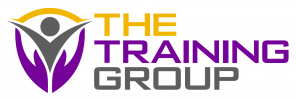Unit 1: Understanding roles, responsibilities and relationships in education and training
Learners will be taught how to analyse the application of pedagogical principles, use assessments, plan lessons and prepare for the classroom environment.
Understanding and using inclusive teaching and learning approaches in education and training
Planning to meet the needs of learners in education and training (Copy 1)
Assessing learners in education and training (Copy 1)
Using resources for education and training (Copy 1)
Unit 2: Teaching, Learning & Assessment In Education & Training (Copy 2) (Copy 1)
Learners will be taught about their responsibilities as educators, educational legislation, meeting the needs of the learners and how to teach in a student-centred manner.
Unit 3: Theories, Principles & Models In Education & Training (Copy 2) (Copy 1)
Learners will be taught ways in which theories, principles and models of learning can be applied to teaching, learning and assessment.
Unit 4: Wider Professional Practice & Development In Education & Training (Copy 2) (Copy 1)
Learners will be taught about the concepts of professionalism and dual professionalism in education and training and how they can apply this within the classroom.
Unit 15: Inclusive Practice (Copy 2) (Copy 1)
Learners will be taught how to review the impact of personal, social and cultural factors on learning and teaching.
Unit 17: Preparing for the mentoring role (Copy 2) (Copy 1)
Learners will be taught how to analyse the skills and qualities required for a the mentoring role teachers play in education.
Unit 25: Developing, using and organising resources in a specialist area (Copy 2) (Copy 1)
Learners will be taught how to analyse how theories, principles and models of inclusive curriculum design can be used to inform resource development in own specialist area.
No questions yet
Be the first to ask your question! You’ll be able to add details in the next step.
Ask a new question
Add an answer
Quality improvement and quality assurance
As a trainee teacher, you are embarking on an exciting journey to becoming a skilled educator, capable of inspiring and facilitating the learning of your future students. One crucial aspect of your development as a teacher is understanding the concepts of quality improvement and quality assurance in education. In this article, we will explore these concepts and their importance in ensuring the provision of quality education.
Quality Improvement
Quality improvement refers to the process of continuously evaluating and enhancing the quality of educational provision. It involves identifying areas for improvement, developing strategies for improvement, and monitoring the implementation of those strategies. Quality improvement is an ongoing process that requires collaboration among teachers, school leaders, and other stakeholders to ensure that students receive the best possible learning experiences.
Quality Management Systems
Quality management systems (QMS) are frameworks designed to support the implementation of quality improvement processes. QMS provide a systematic approach to managing and improving educational quality. They help schools to identify areas for improvement, develop improvement strategies, and monitor progress towards achieving quality standards.
Quality Assurance
Quality assurance refers to the process of monitoring and evaluating educational provision to ensure that it meets or exceeds quality standards. Quality assurance involves a range of activities, including monitoring student achievement, evaluating the effectiveness of teaching and learning strategies, and ensuring that resources are used effectively.
Quality Assurance Cycle
The quality assurance cycle is a systematic approach to quality assurance that involves four stages: planning, implementation, evaluation, and review. In the planning stage, schools identify the quality standards they want to achieve and develop strategies for achieving them. In the implementation stage, schools implement the strategies they have developed. In the evaluation stage, schools monitor and evaluate the effectiveness of the strategies they have implemented. Finally, in the review stage, schools use the information they have gathered to make improvements and to plan for the next cycle of quality assurance.
Conclusion
In conclusion, quality improvement and quality assurance are critical concepts in education. They provide a framework for ensuring that students receive high-quality education that meets their needs and prepares them for the future. As a trainee teacher, it is essential to understand these concepts and their importance in providing quality education. By understanding quality improvement, quality management systems, quality assurance, and the quality assurance cycle, you can play an active role in ensuring that your students receive the best possible learning experiences.
Further Reading:
Academic Articles:
-
Huang, C. H., & Yu, H. T. (2019). The effect of quality assurance on teaching effectiveness and student learning outcomes: Evidence from Taiwan. Journal of Education and Practice, 10(7), 68-74.
-
Lozano, J. F., & Salmerón, L. (2018). Educational quality improvement models: A review. International Journal of Educational Management, 32(4), 614-628.
-
Schildkamp, K., & Kuiper, W. (2019). The effect of data-based decision-making interventions on student achievement: A meta-analysis. Educational Research Review, 28, 1-22.
Online Articles:
-
Education Week. (2021). Quality assurance in education: A comprehensive guide. https://www.edweek.org/leadership/quality-assurance-in-education-a-comprehensive-guide/2021/05
-
Quality Assurance Agency for Higher Education. (2021). What is quality assurance? https://www.qaa.ac.uk/quality-code/what-is-quality-assurance
-
TeachThought. (2018). 5 characteristics of quality educational assessments. https://www.teachthought.com/assessment/5-characteristics-quality-educational-assessments/
Videos:
-
TEDx Talks. (2018, May 15). The role of feedback in quality education. [Video]. YouTube. https://www.youtube.com/watch?v=9WTrk7RuPqQ
-
UNESCO Institute for Lifelong Learning. (2020, June 30). Quality assurance and the recognition of learning outcomes in non-formal and informal learning. [Video]. YouTube. https://www.youtube.com/watch?v=sKbQQCmmH2Y
-
World Bank. (2019, November 12). Improving quality education: A priority for sustainable development. [Video]. YouTube. https://www.youtube.com/watch?v=xxvF6NFKLpo



